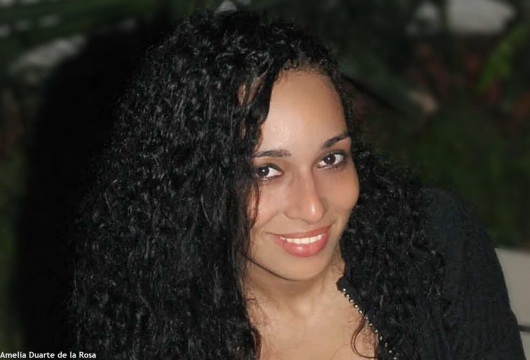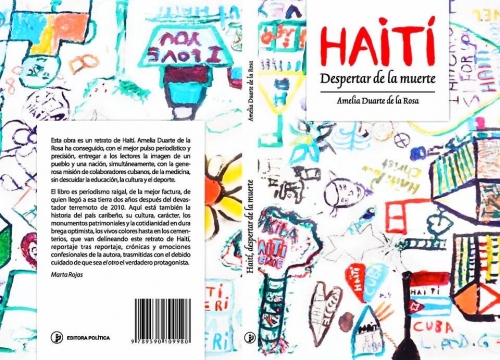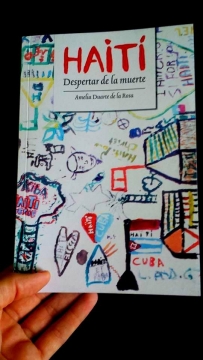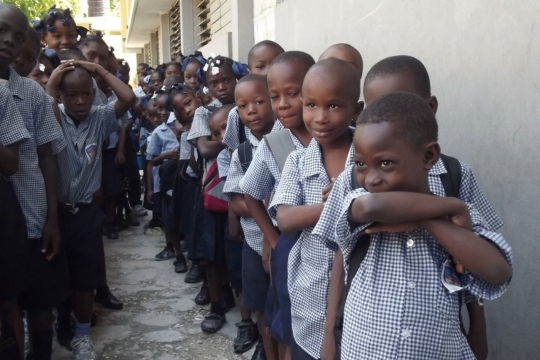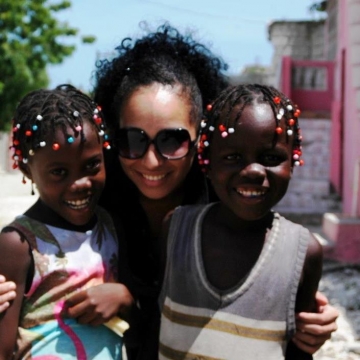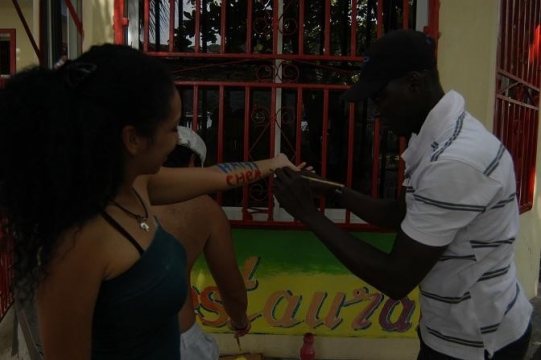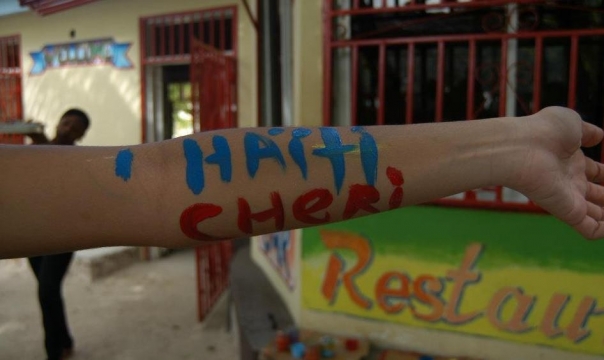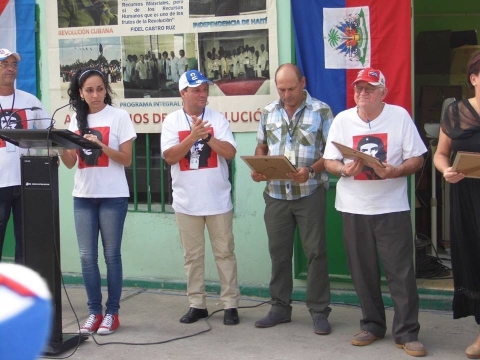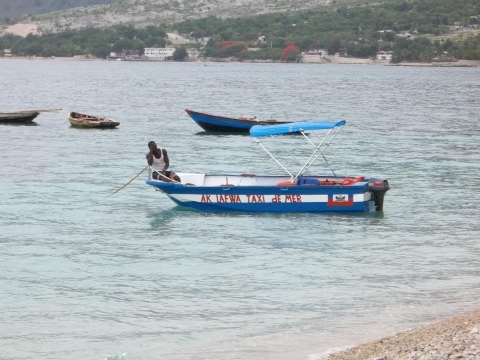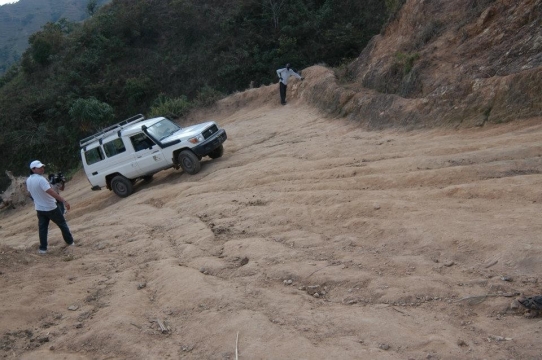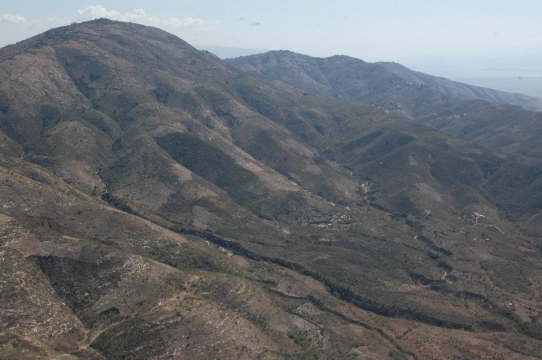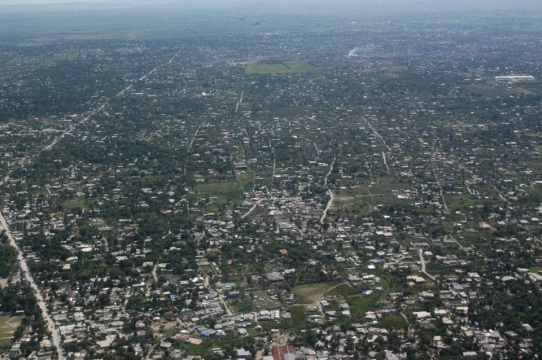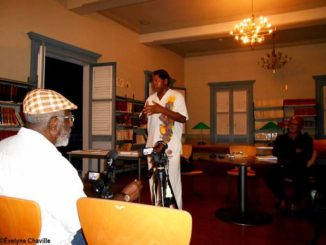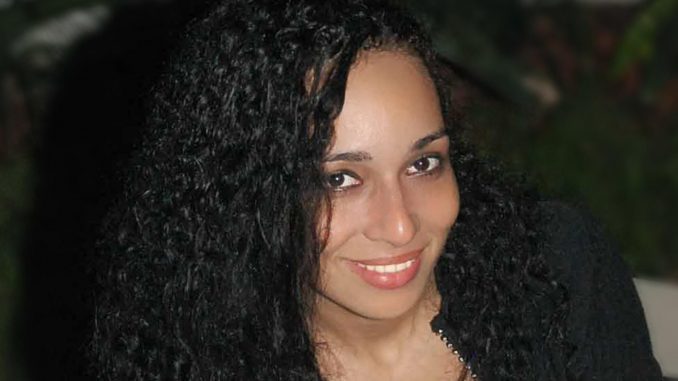
“Haití, Despertar de la Muerte” (Haiti, Wake of Death) is the new book by Amelia Duarte de la Rosa recently published by Editora Política. The author who is the editor-in-chief of the culture section of the newspaper Granma and also the correspondent for Kariculture.net in Cuba lived in Haiti after the devastating earthquake in 2010 and returned to Port-au-Prince in 2014. In this work, she presents with her sensibility, her personal vision – particularly in the cultural and social field – of this island of the Greater Antilles.
The famous Cuban writer and journalist Marta Rojas wrote the preface.
The cover is illustrated with drawings made by Haitian children after the seism with the well-known Cuban painter Alexis Leyva Machado (Kcho).
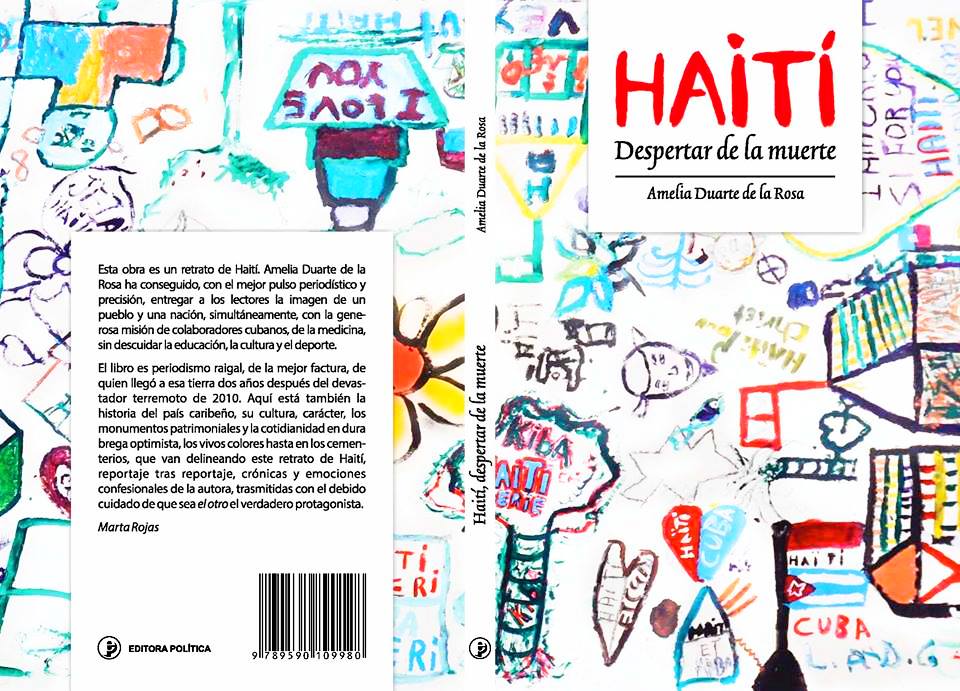
KARICULTURE.NET: How did you come up with the idea of writing this book about Haiti? You could have just written your articles, your reports because you were the correspondent for the newspaper Granma on this large Caribbean island, two years after the 2010 earthquake. Is Haiti a land that gives the creative impulse?
Amelia Duarte de la Rosa: In 2011, the newspaper decided to send me as a correspondent to Haiti to cover the situation of the country which, after the earthquake, lived a fatal cholera epidemic. The news I always read about this country seemed very sad and disheartening. However, when I arrived I saw a wonderful country beyond poverty. I began to discover beauty in everyday things, which perhaps because they are so close, often go unnoticed. That hopeful vision made me write columns about everything I lived daily. I wanted the readers to see through my words that Haiti is not what the mass media say. It is a country like any other, with its advantages and disadvantages, but it is a magical land which has an undeniable beauty. In addition, I have always been very annoyed by all the media paraphernalia that comes together when there is a tragedy in Haiti. Have you noticed that if there are no cyclones, earthquakes or epidemics nobody talks about the Haitians?
To my great delight, all the articles and columns I wrote were published in the newspaper in a section called “Desde Haití” (From Haiti).
When I came back to Cuba in 2012, I was motivated by the opinion of several friends so I decided to compile all the columns and articles in a book, although I was not sure that it would really work. Then, I returned to Port-au-Prince in 2014 and what I saw in that country surprised me and made me very happy. This is when I made the decision to present the book, with my before and after vision, to a publisher. Finally, after three years, the book has just come out and that makes me very happy. Haiti represented many things for me, in Haiti I changed the way I think about journalism, I write, I see life. For me, Haiti is an inexhaustible source of life. A country when you can always return and be happy if you appreciate the beauty of small things. Haiti, as I say in the book, is endless.
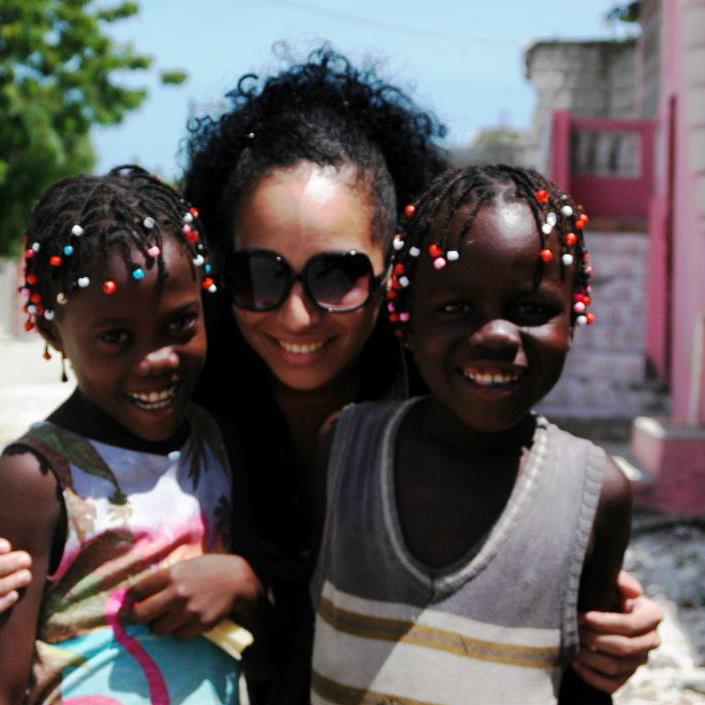
KARICULTURE.NET: Why this title “Haití, Despertar de la Muerte” (Haiti, Wake of the Death) ? Do you mean that death is never far from life? Is it a way of highlighting our human condition?
Amelia Duarte de la Rosa: It can be all that, I never thought of it that way but it is always interesting to know how readers can interpret it. I think that Haiti woke up from death many times and, like every worthy country, it will know in the future how to become entirely master of its own destiny. What I saw in 2012 and then in 2014 made me realize that with political will above all, it is possible to get up and destroy the stigma and myths that exist.
It is impossible to speak about the history of Latin America without Haiti. It is a pivotal country in the struggle for the abolition of slavery and independence. Because it opened this way so many years ago, I think that all the countries of the continent must not forget Haiti and must respect it as such. But everything depends on the Haitians, first.
If they knew how to wake from death after so many calamities they suffered, I hope they can maintain this permanent state and above all, dignity for a long time.
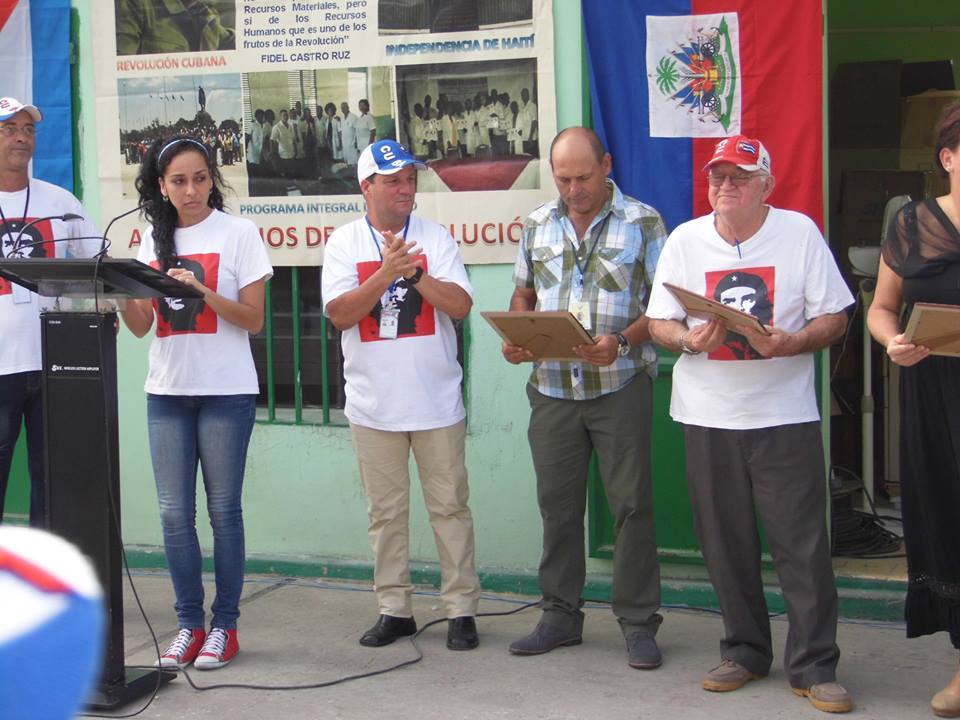
KARICULTURE.NET: After the 2010 earthquake, the Cuban people were at the side of the Haitian people. Cuba sent doctors to Haiti to help the inhabitants. Did you follow this medical staff on the ground? How was the relationship between Cubans and Haitians?
Amelia Duarte de la Rosa: Cuba did not send doctors to Haiti after the earthquake. The Cuban doctors were already there. That is a mistake which was echoed by many media. Cuban doctors have been in Haiti since 1998, when a hurricane flooded Artibonite, a Department of Haiti.
The whole time I was in Haiti, I lived with Cuban doctors. It is a very altruistic and disinterested mission, consultations and operations for the Haitian people are totally free. This is something that the people appreciate a lot and it knows how to reward it with the treatment it gives to the Cubans.
After almost all the humanitarian missions left Haiti, the Cuban medical mission continues to offer its service, not only in the capital, but also in all the Departments, communes and districts of Haiti.
In the book, I talk a lot about this relationship between Cubans and Haitians. Links unit both peoples, due to the geographic proximity and centuries of brotherhood.
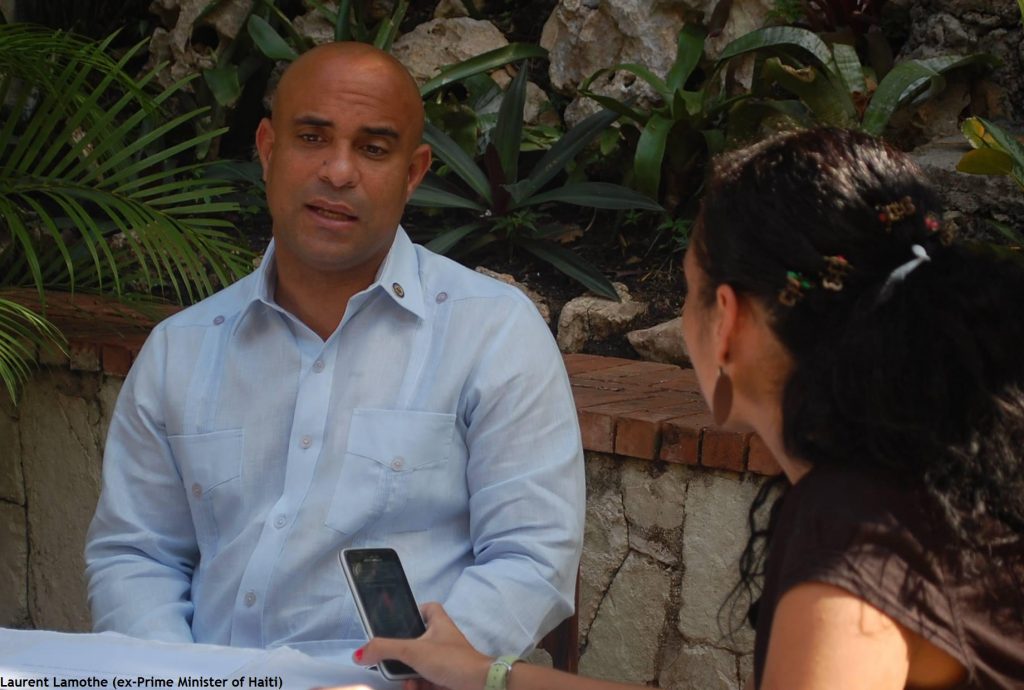
KARICULTURE.NET: For many months, you lived with the Haitians, what do you remember about this Caribbean people ? As a journalist specializing in culture, what do you think of Haitian culture?
Amelia Duarte de la Rosa: Haitian culture is an important part of the book. Social, artistic and idiosyncratic culture.
Artistic culture is very rich in all aspects. It is intense and deep, in the same way as it is colored. I greatly admire its naif painting, its kompa, racine music…and its poetry, there are also very interesting films. My only regret is that I did not have the chance to enjoy its theater, there were not many theaters left standing after the earthquake. Studies of Caribbean culture always take Haitian art into account. Haitian writers such as Jacques Roumain, René Depestre, Frankétienne… are paradigms of Caribbean literature and thought.
My memories of the Haitian people are the best. I left many friends that one day, I know, I will meet again.
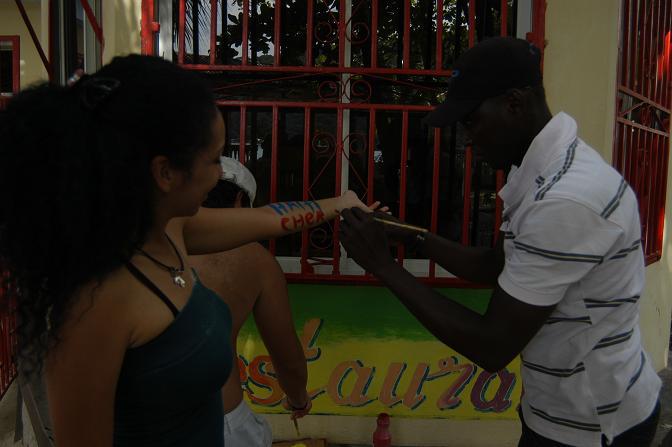
KARICULTURE.NET: You are a journalist passionate for our Caribbean region, for the arts, there are undoubtedly many other topics that inspire you. Do you have other book projects about Cuba, about other islands?
Amelia Duarte de la Rosa: Well, I was already part of an anthology published last year in Cuba about young Cuban essayists and just a week ago came out another book of mine about the Cuban dance titled “Cuba danza la Luna”. It was published by the Samarcanda, a Spanish publisher. It is a book that presents an investigation on Cuban dance in the founding years of the Cuban Revolution. The study is made through criticisms published by the media.
Yes, I have other book projects, but there is nothing concrete yet. I would like to experience a little more the narrative. And if I had the chance to visit other Caribbean islands and write about them as I did in Haiti, I think I would feel a much more complete journalist. A camera and a backpack would suffice. To be able to achieve something like that would come closer to my dream job.

